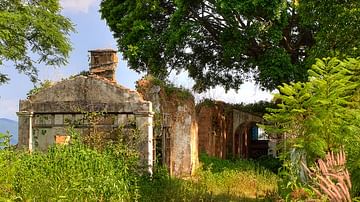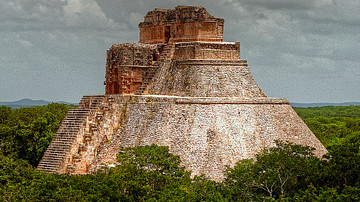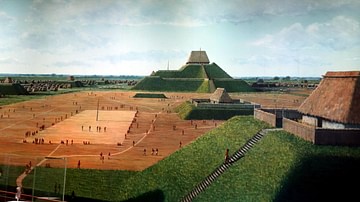Search
Remove Ads
Advertisement
Summary 
Loading AI-generated summary based on World History Encyclopedia articles ...
Search Results

Interview
Interview: Pre-Raphaelites: Modern Renaissance
Pre-Raphaelites: Modern Renaissance marks the first multidisciplinary exhibition in Italy to examine the profound impact of Italian Renaissance art on the Pre-Raphaelite movement, which flourished in Victorian and Edwardian Britain (c. 1840-1920...

Interview
Interview: Living in Silverado: Secret Jews in the Silver Mining Towns of Colonial Mexico
Professor Emeritus David Gitlitz is one of the world’s leading experts on Jewish-Catholic interactions in Iberia and the Americas. While initially drawn to the literature of the Spanish Golden Age as a student at Oberlin and Harvard, the...

Definition
The Conquest of New Spain
The Conquest of New Spain by Bernal Díaz del Castillo (1492 to c. 1580) is an account written in 1568 of the early Spanish colonization of Mesoamerica, specifically the conquest of the Aztec civilization in Mexico from 1519 to 1521 when Díaz...

Definition
Pre-Socratic Philosophers
The Pre-Socratic Philosophers are defined as the Greek thinkers who developed independent and original schools of thought from the time of Thales of Miletus (l. c. 585 BCE) to that of Socrates of Athens (470/469-399 BCE). They are known as...

Lesson
Climate Change & Disaster - Linking Antiquity and Present
This activity can be done in class as a discussion, given as homework or assignment for an essay or a presentation. It includes keys and all the material needed. You can just print and roll with it in your class without preparation! In...

Definition
Pre-Colonial North America
Pre-Colonial North America (also known as Pre-Columbian, Prehistoric, and Precontact) is the period between the migration of the Paleo-Indians to the region between 40,000-14,000 years ago and contact between indigenous tribes and European...

Article
The Iberian Conquest of the Americas
European explorers began to probe the Western Hemisphere in the early 1500s, and they found to their utter amazement not only a huge landmass but also a world filled with several diverse and populous indigenous cultures. Among their most...

Article
The Impact of the Norman Conquest of England
The Norman conquest of England, led by William the Conqueror (r. 1066-1087 CE) was achieved over a five-year period from 1066 CE to 1071 CE. Hard-fought battles, castle building, land redistribution, and scorched earth tactics ensured that...

Definition
Norman Conquest of England
The Norman Conquest of England (1066-71) was led by William the Conqueror who defeated King Harold II at the Battle of Hastings in 1066. The Anglo-Saxon elite lost power as William redistributed land to his fellow Normans. Crowned William...

Article
The Changing Interpretation of the Spanish Conquest in the Americas
The fall in 1519 of Tenochtitlan, the capital of the Mexica or Aztec Empire, as it was later called, laid the foundation for the Spanish colonial empire on the North American mainland. It was the first time that Europeans had subjugated a...